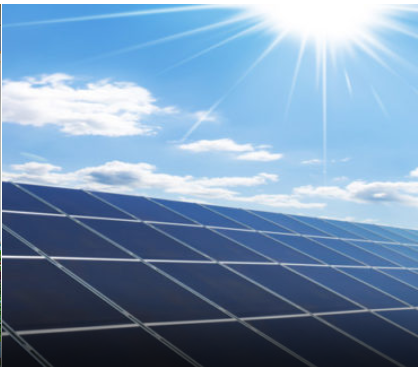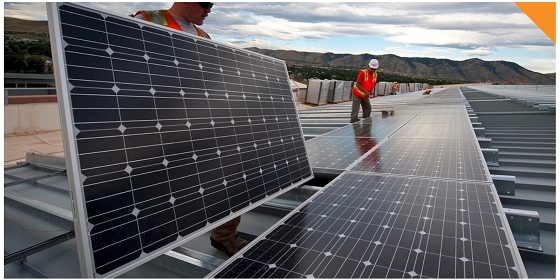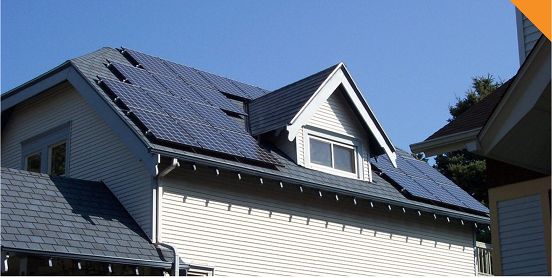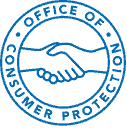Solar Financing

More and more consumers are choosing to go solar. But not only do consumers need to research whether solar is right for them and what company they should choose, they also need to consider how they will pay for it. Going solar does involve a significant expense, and paying cash upfront may not be the best option. There are different kinds of financing available for solar. They generally fall into two categories. The first is Third Party Ownership Financing. The second is Solar Loans.
Third Party ownership Financing
Solar Loans
Third Party Ownership Financing vs. Solar Loans
Third Party ownership Financing

In Third Party Ownership arrangements, a company agrees to put solar panels on your roof but will charge you for the electricity that they produce. The two types of contracts available are solar leases and Power Purchase Agreements.
- Solar leases
- Power Purchase Agreements (PPAs)
In a PPA, a third-party developer owns, operates, and maintains the system. The customer agrees to site the system on its property and, instead of paying “rent,” purchases the power generated by the system at a fixed rate.
One of the main advantages of a PPA over a lease is that if the panels are not working for a period of time, or are producing less power than quoted, then the payments for the system fall accordingly. With a pure lease, the monthly amount is due regardless of actual electricity production from the panels.
Solar leasing companies offer different types of solar leases/PPAs. Not all are $0 down. Some have custom down payments, and others are prepaid. Companies may advertise “free solar panels” when marketing this kind of financing for solar. But while there may be no upfront cost to you, you do not own the system, and the solar energy produced is not free. The tax credits, rebates, and other financial incentives belong to the owner of the system (not you), so you do not receive these benefits.
Lease and PPA terms can vary greatly. It is very important to review contracts carefully and understand all of the terms. Things to consider:
- What is the term length? Residential solar leases and PPAs are usually for 20 to 25 years.
- How are payments calculated? Rent (lease) and rate (PPA) usually increase over time.
- Who is responsible for performance and maintenance? The leasing company will monitor the system's performance to ensure that it is operating correctly for the duration of the lease. They are also responsible for maintaining and repairing it.
- How is the system monitored? Most solar leasing companies offer free online, smartphone, or tablet programs to track your solar panel system's performance.
- Can you buy the system? You may be able buy the solar panel system during the lease term. The terms for any purchase will be defined in the contract.
- What happens if I sell my home? Options may include transferring the remainder of your lease to the homebuyer or buying the system from your leasing company yourself and including it in the sale of your property.
- What happens at the end of the term? Options may include buying the system outright, having the leasing company remove it, or leaving the system in place and renewing the agreement with the owner.
Solar Loans

When you purchase solar panels, you receive the benefit of both the value of the electricity generated by the solar panel system over its lifespan and any investment tax credits and other applicable rebates and incentives. Solar loans are a financing option if you do not have the money for a cash purchase, but want to own the system yourself. They are similar to other home improvement loans and can also vary widely in their terms. They can either be secured or unsecured. Loans with longer terms will have smaller monthly payments, but you will pay more in interest over the life of the loan. Loans with shorter terms may exceed your monthly utility bill savings, but you pay less in interest over the life of the loan.
- Secured loans – require collateral – usually your home.
- Interest is tax deductible
- Better interest rates and term lengths than unsecured loans
- all fees and miscellaneous charges for loans required to be disclosed upfront
- Need equity in your home and a good credit rating
- May take weeks to complete
- Lenders may foreclose if you default
- Must pay off the balance of the loan when you sell your home
- Unsecured loans– do not require collateral other than the solar system itself.
- Don’t need equity in home and lender can’t foreclose if default
- Interest is not tax deductible
- Higher interest rates than secured loans
- Cost more and have lower overall financial benefits than secured loans
- May be more quickly approved
- Fees can be significantly higher than secured loan fees, and may not be disclosed upfront
- Can sell your home without paying off loan, but will still be responsible – loan stays with the person, not the property
Third Party Ownership Financing vs. Solar Loans

- Cash Flow: Monthly savings from a solar loan are likely to be higher than the savings from a solar lease or PPA. This is because solar loans are typically paid down in 7 to 15 years, whereas leases require regular payments over the term of the agreement.
- Financial Incentives: If you choose to finance with a solar loan, you directly benefit from the financial incentives. If you sign a solar lease/PPA, the owner of the system is the solar company, and they receive the financial incentives instead.
- Monthly Payments: Solar leases and PPAs are generally offered for a 20- or 25-year term, and the terms for solar loans can vary from 5 to 20 years. The monthly payments for most solar leases and PPAs increase over the term of the lease, while solar loans typically have fixed monthly payments. The monthly payments for a 20-year solar loan are likely to be lower than those of a 20-year lease or PPA.
- Operations and Maintenance: With a solar lease or PPA, the leasing company owns the system and typically will offer a service program to cover any maintenance issues that arise during the lease term. With a solar loan, you, as the owner, will be responsible for its maintenance.
- Selling Your Home: Home buyers are required to take over a lease or PPA unless the seller pays it off in full. This can have a negative effect when it comes time to sell, especially if there are cheaper and better solar products available. There can also be problems with the buyers qualifying to take over the lease. If you opt to use a solar loan to finance your system, your options differ depending on whether your loan is secured or unsecured, but the home buyer has no obligations.
For more information on going solar:
Solar Energy: A Consumer’s Guide (OCP Newsletter)
Consumer Protection Issues When Going Solar ( YouTube webinar)
Too good to be true: Know your consumer rights about solar energy ( My Green Montgomery blog)
Solar Power On The Roof And In The Neighborhood: Maine Report
